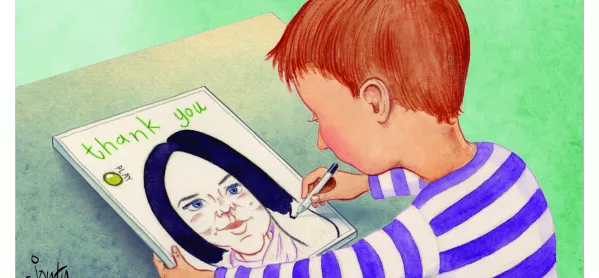Some instances of using tech in the classroom really stick in my mind because of the positive impact they had, and recently it occurred to me that many of those instances have involved children with special educational needs and disabilities. In my experience, if implemented carefully, tech really can help to break down certain barriers to learning.
One particular pupil from a few years back comes to mind. Thomas had a diagnosis of dyslexia and it’s fair to say that he joined my class with a borderline hatred of writing. He was reluctant to put pencil to paper and it took him a long time to produce very little. With his dyslexia, I assumed that spelling - and being worried about spelling - was what was holding him back. Then one day, I did the obvious thing and asked him outright how I could help him. What he revealed led me down another path: “I have good ideas, but I forget them before I can write them all down,” he said.
I set off on a mission to investigate different ways of helping him to record his ideas orally in order for him to refer back to them later. First of all, we tried using a dictation app on one of our class tablets, which didn’t go down too badly, except that some of the translations to text were a little inaccurate. We kept searching, and funnily enough the bit of kit that he really made good use of took me by surprise - a recordable dry wipe board. It worked just like any other normal whiteboard but it had the ability to record and playback up to 30 seconds of sound, too.
He would take himself just outside the classroom to sketch out - he was a gifted artist - and record his ideas on his whiteboard and then he would use it to help him write. For Thomas, a recordable whiteboard that cost about £10 was his tool of choice over a tablet, worth over 10 times more.
Once we’d cracked the issue of helping him to remember his ideas, we also made good use of Clicker software, which I’ve mentioned before. He would use it to type up his work and have the program read it aloud back to him so he could hear any errors and correct them. This writing process became second nature to him. The thread that links all of these different pieces of tech is that they gave Thomas a level of independence that he hadn’t experienced before when writing. In turn, this boosted his confidence tremendously, which, of course - you don’t need me to tell you - made him approach writing in a completely different way.
No piece of tech is a magic pill, but would Thomas have gone on to produce the wonderful independent writing that he did without these tools? I honestly don’t think he would.
Whether it’s the latest app or a cheap recording device, tech can tackle some issues head-on for pupils who might otherwise be left struggling.
Claire Lotriet is a teacher at Henwick Primary School in London. She blogs at clairelotriet.com
@OhLottie
This is an article from the 26 February edition of TES. This week’s TES magazine is available in all good newsagents. To download the digital edition, Android users can click here and iOS users can click here




